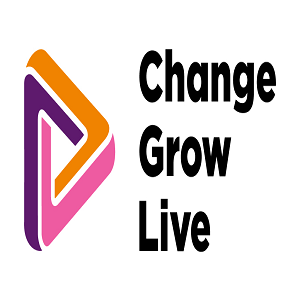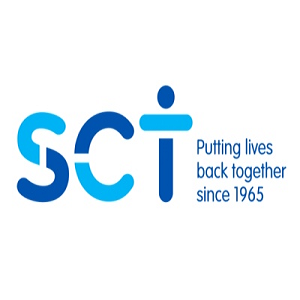Find Suitable Drug & Alcohol Rehab in London

How Does Rehab Work in London?
Rehab involves many strategies that are created to deal with individual addiction with support, wellness methods, and steps to restoring balance. Clients are introduced to life-changing, supportive, and therapeutic programmes that are led by addiction therapists. Along with individual therapeutic intervention, individuals can benefit from the support received from group sessions. Addictions are treated through an inpatient or an outpatient programme. For those who enter an inpatient rehab programme, the programme requires that one stay inside the centre or the facility with limited access to the outside world. Outpatient services are an option for those with less severe dependencies, and will meet with a counsellor weekly while attending work commitments and remaining at home.
What Happens During Residential Rehab in London?
Taking the brave step towards recovery starts with rehabilitation. It is a process, and it takes time but with dedication and support relapse can be prevented. If you’re unsure about what rehab entails, we provide a breakdown of what to expect.
Prior to entering treatment every individual will be assessed by a medical professional. The aim is to create a treatment plan suited to individual health and wellness needs. This is particularly important for those with a history of addiction and comorbid mental conditions including depression, anxiety or bipolar disorder.
The next part of treatment is detox. Detox assists with the removal of toxic substances from the body. It may be important that it is medically supervised to manage withdrawal symptoms. This is especially true for benzodiazepine and alcohol dependency. The final step of the programme is the treatment itself (therapy). Individuals can then decide upon inpatient or outpatient treatment.
During rehab you will receive therapy. Treatment can be accessed on an inpatient or outpatient programme. Therapy consists of individual counselling including Cognitive Behavioural Therapy, skill building and group therapy.
1. Assessment

Before treatment can be delivered, a health assessment is provided. This involves an in-depth look at individual medical history, substance use, and the presence of mental health disorders. Patients can be accommodated with a medical assessment by phone. An admissions team will be responsible for the telephone assessment to decide on the best form of therapy. Along with determining a treatment plan, the admissions team or medical professional will have accurate information to facilitate the detoxification.
To help you or someone you know, receive the best possible therapy for addiction and substance use, it is important to receive an individual assessment by a dedicated professional. The assessment will assist the course of therapy including treatment for those with comorbid illnesses such as anxiety. Call us on 03334444432 to get started now.
2. Detox

If you are addicted to drugs and/or alcohol or you have a substance in your body, you must undergo detox before you can proceed with a therapeutic programme. Detox is performed in an inpatient facility or a medical facility. During detoxification, the substance is gradually cleared from the body which often results in withdrawal symptoms.
A medical detox is often recommended because it helps medical staff to oversee withdrawal symptoms that may develop. Withdrawal from drugs or alcohol can be uncomfortable and relapse may occur if not managed within a treatment centre facility. Medically assisted detox can ease the process of withdrawal by supporting clients and providing medical treatment to limit withdrawal symptoms. During an individual assessment, a professional will determine which approach is best suited to a comfortable detox and entry into treatment thereafter.
3. Therapy

Therapy begins when the body is rid of drugs including alcohol. The option of being assigned to an inpatient or an outpatient service will depend on the individual assessment, finances and life commitments. Therapy provided in treatment ranges from individual counselling with a therapist, the attendance of group therapy, and emphasis on developing positive coping mechanisms as well as life skills.
Step by Step Process for Residential Rehab
To understand your medical and mental health history.
Arrange a suitable date to begin your journey to recovery.
Begin the managed withdrawal process from substances including alcohol.
To understand the root cause of addiction and how to overcome it.
Aftercare is provided to help manage the risk of relapse.
To help heal the wounds that addictive behaviour has caused others.
Find your Nearest Rehab Centre in London
The nearest rehab centre is Step By Step Recovery – Drug & Alcohol Rehab London.
Address: Step By Step Recovery – Drug & Alcohol Rehab London, 5-7 Cranwood St, London EC1V 9EE, United Kingdom
Call 0333 4444 432 to discuss your alcohol or drug rehab requirements and any other questions you may have about the process of residential rehab.
Outpatient Addiction Services in London
To better understand which type of treatment will help you in your journey to overcoming addiction, it is important to look at the differences between outpatient and residential rehabilitation. Outpatient rehab can be very useful as it provides a flexible and a cost-effective alternative to inpatient treatment.
An outpatient programme doesn’t require you to remain at the residence for treatment. If you have work, family, or other lifestyle commitments, outpatient programmes allow you to concentrate on these areas while visiting a centre or counsellor to receive addiction therapy and other support services.
Private outpatient services involve therapy and counselling sessions provided by a therapist/counsellor. Sessions can last between 60 and 90 minutes. Free alternatives do exist through one of the many reputable charities in the UK (Turning Point), but it does not provide the same individualised care that private services provide.
NHS Free Addiction Services in London
The Benefits of Outpatient Services
Private outpatient plans are tailored to the patient. The purpose is to offer optimal standards of care and intervention for recovery from addiction. – Outpatient support is considered flexible because individuals with families and work commitments may continue to manage these areas of life while attending weekly or twice weekly counselling sessions. – It is also less expensive compared to inpatient rehab services.
The Challenges of Outpatient Services
Outpatient services will always have a crucial place in rehab but for drug or alcohol addiction, staying at home with access to triggers and regular social circles can risk relapse. Furthermore, free outpatient services provided by the NHS or UK based charities do not provide the same tailored programme that private outpatient services provide, and there is typically a waiting list before you can be accepted for treatment.

How Much Does Rehab Services Cost in London?
Residential drug and alcohol rehabilitation in London can usually cost between £1500- £4000 per week. Private addiction treatment within a residential facility may not be accessible for everyone. However, charity based and government organisations provide free or low cost programmes that those struggling with addiction can get help from.
The NHS and charities such as Turning Point provide free rehab programmes for those struggling with drug and alcohol addiction. It is important to note that Turning Point requires a self-referral to access treatment. You should also find free support groups offered by Alcoholics Anonymous, Cocaine Anonymous, and Narcotics Anonymous very useful for long term recovery from addiction.
Support Groups in London

Charing Cross As Bill Sees It
Friends Meeting House, 8 Hop Gardens, St Martins Lane WC2N 4EA

Charing Cross Lunchtime Step
Friends Meeting House, Hop Gardens, St Martins Lane. (entrance down lane beside The Med Kitchen). WC2N 4EA

Charing Cross Reflections
Friends Meeting House, Hop Gardens, St Martins Lane. (entrance down lane beside The Med Kitchen). WC2N 4EA
The Pros and Cons of Seeking Treatment in Your Local Area
Pros
1. You are familiar with the area which may provide a layer of comfort/safety.
2. Family or friends can easily travel to visit or are close by.
3. You may save on the costs of travelling long distances for treatment, or free addiction services may only be offered in your area of residency.
Cons
1. A local environment means access to drug dealers or other triggers. This is more of an issue if you opt for outpatient programmes.
2. Failing to consider locations outside your area could mean missed opportunity for more valuable and rewarding programmes.
3. Addiction treatment services that are close by don’t always provide the best standard of treatment.
In the event you are unsure about a particular addiction treatment service, you can look to the CQC website for more information including a rating of that service.
Drug and Alcohol Rehab in London: Areas We Cover
Substance Rehabilitation offers extensive alcohol rehab support in popular areas throughout London. We cater to the entire London area and are not restricted to specific regions. For assistance, please contact Substance Rehabilitation at 03334444432.
Belgravia
Bermondsey
Bethnal Green
Brixton
Camberwell
Camden
Canary Wharf
Chiswick
Chelsea
Clapham
Covent Garden
Crystal Palace
Dalston
Deptford
Earl’s Court
Ealing
Fitzrovia
Fulham
Greenwich
Hackney
Hammersmith
Hampstead
Highgate
Holborn
Hoxton
Islington
King’s Cross
Kensington
London Bridge
Maida Vale
Mayfair
Notting Hill
Paddington
Peckham
Pimlico
Richmond
Shoreditch
Sloane Square
Soho
South Bank
Tower Bridge
Walthamstow
Wimbledon
Whitechapel
Woolwich
Frequently Asked Questions
What treatments are offered in London’s drug and alcohol rehab centers?
In London’s rehab centers, individuals receive personalized treatments including therapy, counseling, and detoxification, tailored to their needs.
How to find affordable drug and alcohol rehab centers in London?
Contact Substance Rehabilitation at 03334444432; we help you find budget-friendly options ensuring quality care.
What therapies are common in London’s rehab programs?
London’s rehab programs often include therapies like CBT and counseling, providing comprehensive support for recovery.
Are there specialized rehab programs for different age groups in London?
Yes, in London, there are specialized programs for various age groups, ensuring targeted support for adolescents, adults, and seniors.
Why is aftercare important in London’s drug and alcohol rehab?
Aftercare, crucial for sustained recovery, offers ongoing support. Substance Rehabilitation connects you to aftercare services post-rehab.
What’s the typical duration of rehab programs in London?
Rehab program lengths vary, typically spanning 30 to 90 days. Substance Rehabilitation guides you to programs that fit your needs.
Where can I get help for a loved one’s addiction in London?
Call Substance Rehabilitation at 03334444432; we assist in finding suitable rehab options, supporting your loved one’s recovery.
Are there support services for families of rehab patients in London?
Yes, London’s rehab centers offer family support services. Substance Rehabilitation ensures families receive the help they need.
What self-help resources aid addiction recovery in London?
In London, there are various self-help resources available to support addiction recovery. Substance Rehabilitation can direct you to these valuable resources.
Is medical supervision provided during detox in London’s rehab centers?
Yes, reputable rehab centers in London provide medical supervision during detox, ensuring safe and comfortable withdrawal.
References:
- NHS. (2023, February 13). Drug addiction: getting help. Retrieved from https://www.nhs.uk/live-well/addiction-support/drug-addiction-getting-help/
- Government of the United Kingdom. (2023, March 7). Alcohol and drug misuse prevention and treatment guidance. Retrieved from https://www.gov.uk/government/collections/alcohol-and-drug-misuse-prevention-and-treatment-guidance
- Drug rehabilitation. (2023, January 10) In Wikipedia. https://en.wikipedia.org/wiki/Drug_rehabilitation


